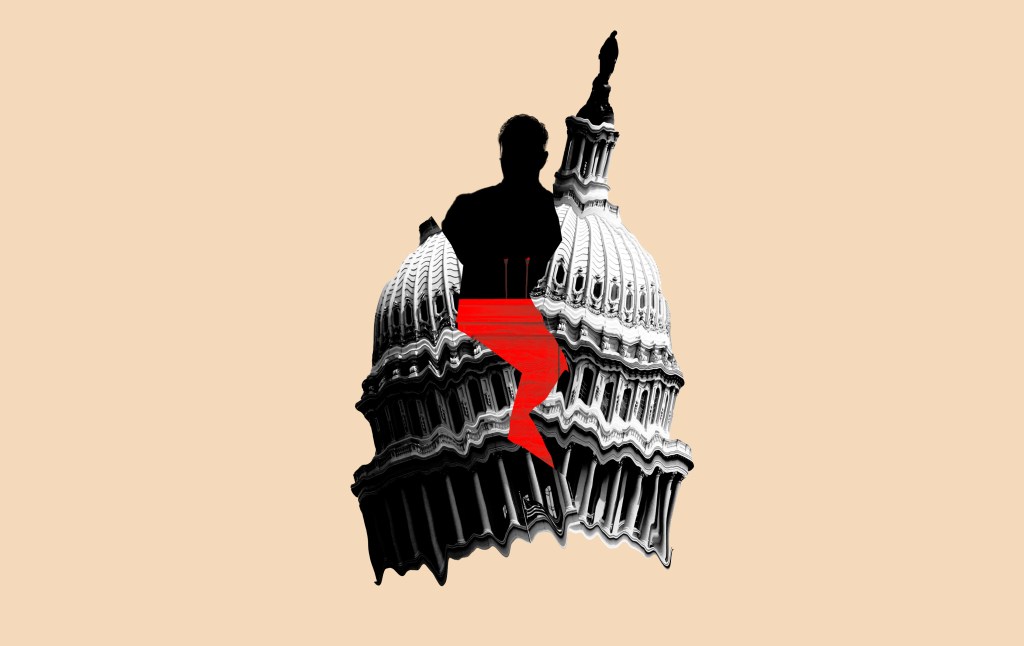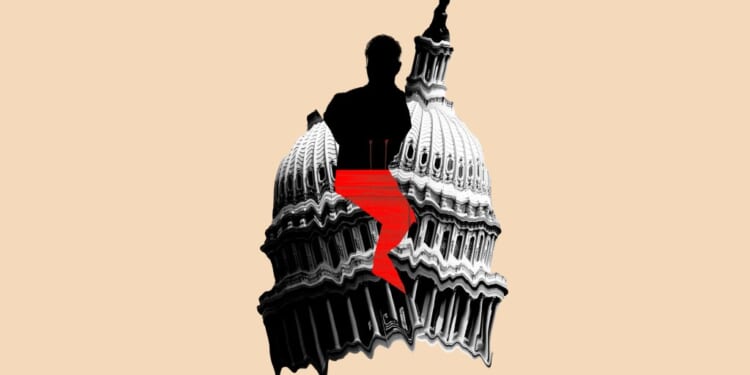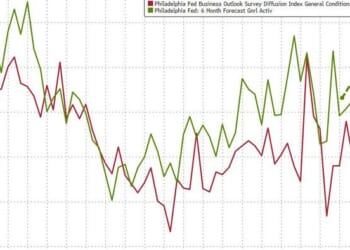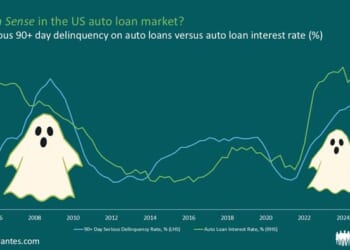
For years now, it’s been one of the big-time, old-school-conservative shibboleths: The Senate’s legislative filibuster must be defended at all costs. When Democrats have the Senate, conservatives stick up for the filibuster. When Republicans have the Senate, conservatives stick up for the filibuster. Though the mountains be shaken and the hills be removed, nevertheless conservatives’ faithful love for the filibuster will remain—or at any rate that’s how it’s felt.
Naturally, there are plenty of good reasons for this. Conceptually, conservatives have always found much to like in the anti-majoritarian impulse the filibuster represents. It’s not enough, the filibuster says, to win congressional majorities: For the most part, if you want to change federal laws, you need either sufficient mass popular support to win a Senate supermajority or some level of buy-in from the minority party. Well and good, conservatives say: Policy should change slowly, passing new laws should be an arduous task, and incentivizing lawmakers to seek bipartisan compromise is never a bad thing.
Conservatives’ pro-filibuster convictions grew firmer during the Biden years, as conservatives enjoyed watching the former president’s legislative agenda break on the rocks of the procedural obstacle and Senate Democrats’ feckless attempts to move it out of the way: Sorry, nerds, try winning a few more seats next time! And they’ve retained an ornery appreciation for it during Donald Trump’s return to power, as a talisman indicating that there are some things the GOP Senate apparently still won’t roll over on for the president.
But the filibuster isn’t an axiom of right-thinking political philosophy. It wasn’t handed down from on high on tablets of stone—or even baked semi-permanently into the American system by the Founding Fathers. It’s a piece of procedure, one that deserves to exist if it encourages and achieves good outcomes and that deserves to be questioned if it ceases to do so. And lately, it’s becoming harder to argue that the filibuster is accomplishing any of the positive outcomes with which its defenders credit it.
“My point isn’t that the filibuster is directly to blame for any of these overreaches, of course. (I blame Trump!) My point is that decades of filibuster-induced gridlock have, far from encouraging comity and bipartisanship, helped sap the strength of Congress, leaving an enervated and exhausted body that Trump now walks all over with contemptible ease.”
Andrew Egger
“Whether it’s Trump’s tariffs or Biden’s student-loan cancellation, the thing keeping two-thirds of Congress from getting its act together is not the filibuster. It’s partisanship that keeps members of Team Red and Team Blue from defying the president of their own party even when they know he is wrong.”
John McCormack
Start with the most obvious: those supposed incentives for bipartisanship and compromise. Sniff around Washington: Do you detect a lot of either in the air? This week, Congress is in the process of winding down the longest government shutdown in American history. These ludicrous, enormously costly shutdowns, once nearly unthinkable, now loom over Congress pretty much at all times as the body limps from one short-term spending crisis to another, like a guy with two blown knees trying to compete in the 60-meter hurdles. Forget about passing meaningful legislation—Congress has grown so sclerotic of late that it can’t even manage to keep the lights on.
That total breakdown of bipartisan functionality isn’t the poor old filibuster’s fault, of course. But it makes it clear that we’re not being quite accurate when we talk about the filibuster incentivizing comity and compromise. What the filibuster actually does is punish the absence of bipartisanship. But those punishments are administered corporately, to the body of Congress as a whole, which means they maintain only an extremely weak hold on the behavior of individual lawmakers. When weighed against the cornucopia of individual incentives pushing lawmakers the other direction, toward greater radicalism, acrimony, and legislative arson, the filibuster barely registers at all.
The filibuster can’t turn a highly partisan era bipartisan. But it does make living in a highly partisan era far more painful. The national convulsions of shutdowns and the threats of shutdowns aren’t even the whole of it—just look at the tortures Minority Leader Chuck Schumer is enduring this week. Congressional Republicans needed Democratic votes to surmount the filibuster and fund the government, but refused point-blank to offer concessions to earn those votes, relying instead on shutdown pain to do their arguing for them. Democrats didn’t want to see that shutdown pain continue—but the second they caved, the clarion cry went up from the base that Democratic leadership had betrayed them by refusing to continue the fight. The uproar could ultimately cost Schumer his role in leadership—and if he were replaced by a Democrat even less willing to cut deals with Republican leadership, it would be the structure of the filibuster itself that was counterintuitively to blame.
Even the laws that do get passed are stretched and deformed cartoonishly based on their long trip through the unforgiving tubing of the filibuster process. With actual bipartisan lawmaking a laughable fantasy these days, Senate majorities are turning more and more often to the absurd reconciliation process—a filibuster-dodging maneuver originally intended for making fiscal-policy tweaks that has now become the sole available vehicle for party-line policymaking. The One Big Beautiful Bill Act this summer was the latest frankenbill to pass through the reconciliation process, with Republicans larding it up with every policy priority they could get past the Senate parliamentarian, then passing it on a party-line basis. Such is the process that passes for lawmaking under the tyrannical eye of the legislative filibuster.
Perhaps none of that matters. After all, the incentives to bipartisanship are only a secondary reason why conservatives have long supported the filibuster. The main dish is the structural one: the deliberate placement of barriers against too-speedy political change. If the filibuster were still accomplishing that, perhaps the paralysis and gridlock it routinely inflicts on Congress could be justified.
But, well—look around again. We are not exactly living in an era of glacial policy change. Just the opposite, in fact: The Republicans who last year retook unified control of government are sprinting ahead in every policy area they like, the motto you can just do things! forever on their lips. But they’re not doing it by exercising their congressional majority. They’re doing it by means of a runaway president who is content to shove Congress out of the way.
The problem of Congress gradually ceding its authorities to the executive is a longstanding and bipartisan one. But Donald Trump seems determined to rewrite the record books in this department. The lawmaking powers he has bestowed on himself are vast. He has proclaimed himself the final authority on government spending levels through DOGE and rescissions. Ditto with tariffs, where he has abused emergency authorities to utterly reshape the face of global trade. He is waging an increasingly open war on suspicious-looking boats off the coast of Venezuela. And he has simply ignored laws he does not wish to enforce, from the Hatch Act to the TikTok ban.
Underlying all these actions is a particular populist political argument: If Congress won’t act, I will. And indeed, Congress’ well-earned reputation for its inability to pass any legislation of note seems to be giving Trump significant political cover. No matter how low his approval rating sinks, Congress’ remains consistently worse.
My point isn’t that the filibuster is directly to blame for any of these overreaches, of course. (I blame Trump!) My point is that decades of filibuster-induced gridlock have, far from encouraging comity and bipartisanship, helped sap the strength of Congress, leaving an enervated and exhausted body that Trump now walks all over with contemptible ease. And just as importantly, that gridlock has primed all too many Americans to meet Trump’s usurpation of legislative powers with a shrug at best and open enthusiasm at worst. The corollary of “If Congress won’t act, I will” comes from the public: If Congress can’t act, why shouldn’t the president?
Anti-majoritarian procedural mechanisms like the filibuster are supposed to function like a dam built across a river: not blocking up the popular will, but constraining and channeling it in a constructive and orderly direction. But any structural engineer could tell you that operating a dam without respecting changes taking place upstream is a recipe for disaster. Choke the flow off too much—particularly in rainy times—and your dam may overflow or burst, destroying everything in the river’s suddenly unconstrained path.
Whatever the filibuster’s merits in other times, it seems clear that this is its main function in our time: choking off the flow of the river of the popular will until the reservoir is full to bursting. The political bases of the left and right each demand sweeping changes to American government—and increasingly are placing their hopes in leaders who pledge to work around Congress to do it. This is the dangerous place to which filibuster-bred congressional paralysis has brought us.
In this environment, we should be looking for ways to make Congress stronger, not weaker—more responsive, not less, to the will of the voters who put them there. The public should be reminded that Congress is the body the Constitution charged with turning its will into political reality. And it’s hard to think of a policy lever better suited to the purpose than the abolition of the filibuster—which is never more than a single simple-majority Senate vote away.

















